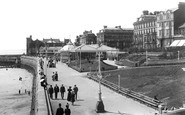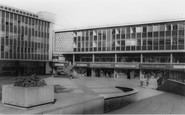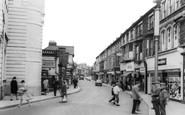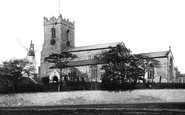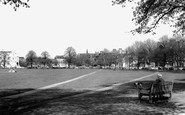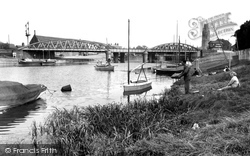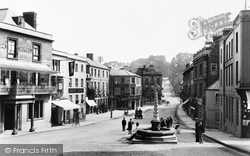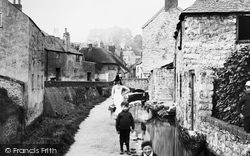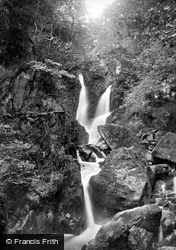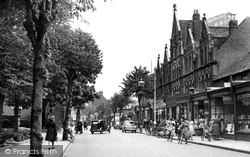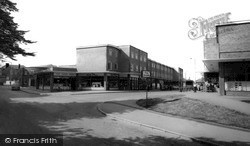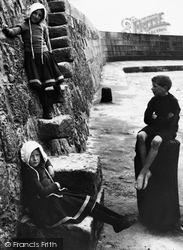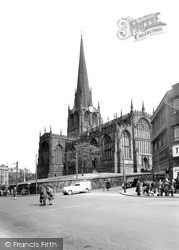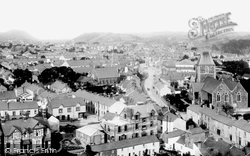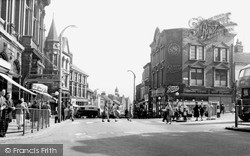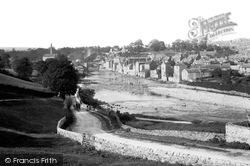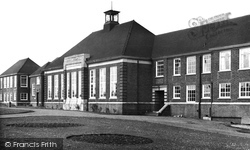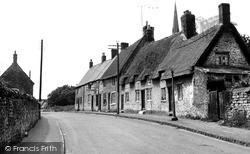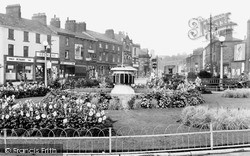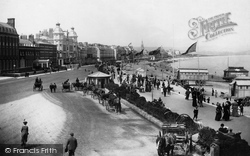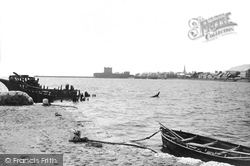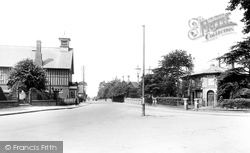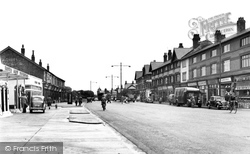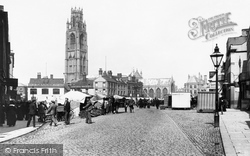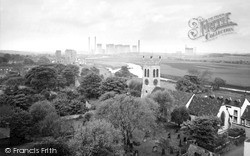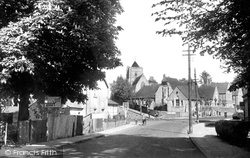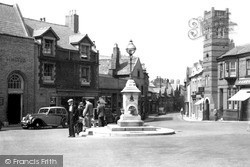Merry Christmas & Happy New Year!
Christmas Deliveries: If you placed an order on or before midday on Friday 19th December for Christmas delivery it was despatched before the Royal Mail or Parcel Force deadline and therefore should be received in time for Christmas. Orders placed after midday on Friday 19th December will be delivered in the New Year.
Please Note: Our offices and factory are now closed until Monday 5th January when we will be pleased to deal with any queries that have arisen during the holiday period.
During the holiday our Gift Cards may still be ordered for any last minute orders and will be sent automatically by email direct to your recipient - see here: Gift Cards
Places
26 places found.
Those places high-lighted have photos. All locations may have maps, books and memories.
- Town End, Derbyshire
- Town End, Buckinghamshire
- Town's End, Somerset
- Towns End, Dorset
- Town End, Merseyside
- Town End, Cambridgeshire
- Town's End, Buckinghamshire
- West End Town, Northumberland
- Bolton Town End, Lancashire
- Kearby Town End, Yorkshire
- Town End, Cumbria (near Grange-Over-Sands)
- Town End, Cumbria (near Bowness-On-Windermere)
- Town End, Yorkshire (near Huddersfield)
- Town End, Yorkshire (near Wilberfoss)
- Town End, Cumbria (near Appleby-in-Westmorland)
- Town's End, Dorset (near Melbury Osmond)
- Town's End, Dorset (near Swanage)
- Town End, Cumbria (near Ambleside)
- Town End, Cumbria (near Lakeside)
- Town End, Cumbria (near Kirkby Lonsdale)
- Town End, Cumbria (near Ambleside)
- Town's End, Dorset (near Bere Regis)
- West-end Town, South Glamorgan
- Townend, Derbyshire
- Townend, Strathclyde (near Dumbarton)
- Townend, Staffordshire (near Stone)
Photos
26 photos found. Showing results 461 to 26.
Maps
195 maps found.
Books
160 books found. Showing results 553 to 576.
Memories
3,720 memories found. Showing results 231 to 240.
Memories Of Aylesbury During The 60s And 70s
I was born in Buckingham Road in 1962 and lived in the same house (no.225) until I left for North Wales in 1985. I have many happy memories of living there, going to the Primary and Junior schools in ...Read more
A memory of Aylesbury by
Childhood In The 1950s
It breaks my heart to see how the years, short-sighted councillors and rapacious businessmen have ruined this once noble and beautiful seaside resort. How could anybody have countenanced destroying this view for the ...Read more
A memory of Bridlington by
John Ansells Memories 1938 1951
As a 10 year old, I moved with my parents to 90 Middle Lane 1938, which is now demolished. I remember watching the firework displays at Alexandra Palace. I was evacuated to Cornwall in 1938 with Crouch End Junior ...Read more
A memory of Hornsey in 1940 by
Band Meeting Place
I can remember in my youth, meeting here as a member of the Basildon drum and trumpet corp, we used to march up the slope and into the town square where we did our display. That was in the 1970s.
A memory of Basildon by
Caerphilly
I used to live in Bartlett Street next to the bus station. My first job in Caerphilly was as a delivery driver for Harris & Ash DIY merchants, they were situated in a double fronted shop opposite the castle, although I came across a ...Read more
A memory of Caerphilly in 1966 by
Six Weeks In Pontypool
I was evacuated with my school to Pontypool on 1st September 1939. I was taken in with my friend Jim Baker, by a retired miner and his wife, and spent six weeks in what was alleged to be the smallest house in Pontypool. I ...Read more
A memory of Pontypool in 1930
My Childhood
My parents were married at Stranton, and I was baptised there. We lived in a neighbouring street, Bower Street, in what would now be regarded as a slum property, with outside toilet and a single tap that was also outside. My lifelong ...Read more
A memory of Hartlepool in 1955 by
Marching On The Green
I used to live in Niton Road, Richmond from 1946-67 until I married and moved to Kent. I joined the Girls Life Brigade when I was 5 years old and left when I was 12. In that time we used to practice our marching ...Read more
A memory of Richmond by
Shops
I moved to Buckhaven from Methil in 1973 and can remember being able to do almost all my weekly shopping in the town. Between Randolph Street and College Streets, there were enough shops to provide all your family needs. The Co-op had a ...Read more
A memory of Buckhaven in 1973 by
Remembering Downend
Yes, I too remember the pig sty slaughter house that was there on the corner. It seems a long time ago. I too went to Downend County and I lived in Burley Grove 1953 to 1968. I was with the church lads' ...Read more
A memory of Downend by
Captions
5,111 captions found. Showing results 553 to 576.
The lantern tower of St Botolph's dominates the town and the surrounding countryside. The river flows down into the Wash.
The town, built in oolitic limestone, is a most attractive one: its streets curve up and down hill picturesquely.
Its surroundings are pleasant without being spectacular: 90% of Staffordshire is rural, and nowhere in the town, not even in the very centre, is one ever far from the countryside.
The old tracks from the neighbouring village of Uplyme are the original routes into the town before the construction of the present road along the coast.
The waters of Stock Ghyll rise just below the summit of the Kirkstone Pass, north of the town, and plunge through this wooded gorge before joining the River Rothay and eventually entering Windermere.
For so long Eastleigh has been synonymous with marshalling yards and the grime of the railway age.
The shopping parade was built between 1960 and 1966 by Wallis, Finlay, Smith & Ball on the site of a house of some historic interest called Fountainville.
Jane Austen visited the town and adored the setting, capturing her enthusiasm in her novel. 'The young people were all wild to see Lyme', she wrote as her characters approached the town.
The 180ft-high spire dominates the town, and looks down onto the heart of the shopping area.
Despite being hemmed in by the surrounding hills, by the turn of the century Carmarthen was already a sizeable and bustling town.
One hundred years before this, there were no large shops in the town, and the age of the department store was still a few years away.
There was a time when Barnard Castle was one of a number of prosperous towns in the Palatinate; the others were Durham, Darlington, Hartlepool, Stockton, Sedgefield, Staindrop and Wolsingham.
Named after the founder of the steel works, this imposing brick building in Rockingham Road was constructed in 1937 to cater for the large number of schoolchildren coming into the town and to ease
The village expanded with the boot and shoe works in the later 19th century, but the original stone village survives.
Opened in 1934 on the site of the former Middleton Hall corn mill, these gardens became another focal point for the town and a much-loved asset.
King George is commemorated by a statue in the town and a carved chalk figure on the hills nearby.
The Normans established a town, and provided the church which was dedicated to St Nicholas.
Sandy was originally a modest Roman settlement on the Roman road between St Albans and Godmanchester; in the 18th century the town became important for its coaching inns servicing the Great North Road.
Birkenhead is a surprisingly large and sprawling town, and has taken in its outlying villages to become suburbs.
The town centre is dominated by its very large triangular market place, which in its turn is visually overwhelmed by the mighty church steeple, completed in 1460 and universally known as the Boston Stump
In the distance the modern cooling towers of Ferrybridge Power Station and in the middle distance the Aire and Calder Navigation parallel with the River Aire.
St Wilfrid's Church dates back to 1865, and contains a stained glass window dedicated to two brothers. Two other brothers who died within two months of one another are also commemorated.
The waters of Stock Ghyll rise just below the summit of the Kirkstone Pass, north of the town, and plunge through this wooded gorge before joining the River Rothay and eventually entering
The Cross is the name given to this road junction in the centre of the town, and does not refer to the drinking fountain pictured here.
Places (26)
Photos (26)
Memories (3720)
Books (160)
Maps (195)



